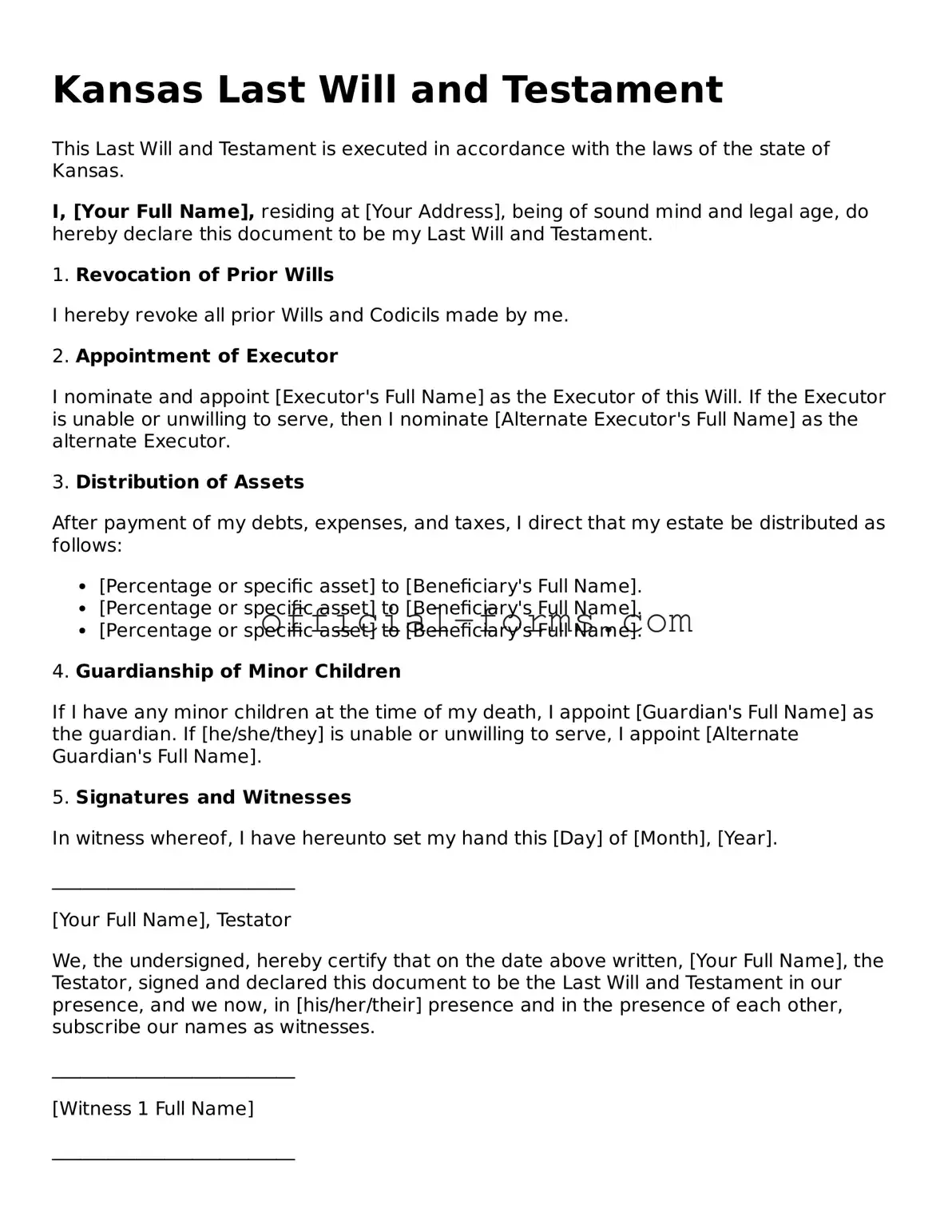Creating a Last Will and Testament is an important step in ensuring that your wishes are honored after your passing. However, many people make common mistakes when filling out the Kansas Last Will and Testament form. Understanding these pitfalls can help you avoid them and create a valid and effective will.
One frequent mistake is failing to properly identify the testator, which is the person making the will. It is crucial to include your full legal name and address. Omitting this information can lead to confusion about the will's validity and may even result in legal challenges.
Another common error is not being specific about the distribution of assets. Vague language can create ambiguity and lead to disputes among heirs. It is essential to clearly outline who receives what, including specific items and their corresponding beneficiaries.
People often forget to sign their will. In Kansas, the law requires that the testator sign the will in the presence of at least two witnesses. If this step is overlooked, the will may not be considered valid. Additionally, witnesses should not be beneficiaries of the will to avoid potential conflicts of interest.
Additionally, some individuals neglect to update their wills after significant life events, such as marriage, divorce, or the birth of a child. Failing to make these updates can result in unintended consequences, such as leaving out loved ones or including individuals who should no longer inherit.
Another mistake is not considering the appointment of an executor. The executor is responsible for carrying out the terms of the will. If you do not designate someone, the court will appoint an administrator, which may not align with your preferences.
Many people also underestimate the importance of including a residuary clause. This clause addresses any assets not specifically mentioned in the will. Without it, any leftover assets may be distributed according to state law, rather than your wishes.
Some individuals may also fail to seek legal advice or assistance when preparing their will. While it is possible to create a will on your own, consulting with a legal professional can help ensure that your document meets all legal requirements and accurately reflects your intentions.
Lastly, neglecting to store the will in a safe and accessible location can lead to complications after your death. It is important to inform your loved ones about where the will is kept to prevent delays in the probate process and ensure that your wishes are followed.
By being aware of these common mistakes, you can take the necessary steps to create a clear, valid, and effective Last Will and Testament that reflects your wishes and protects your loved ones.

